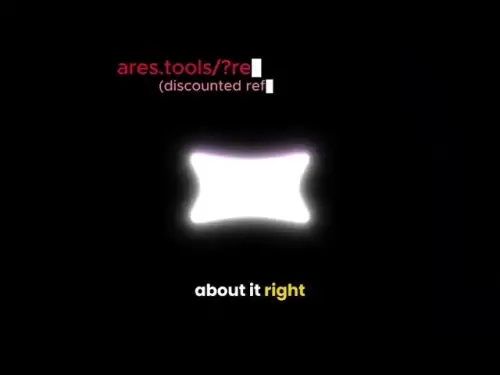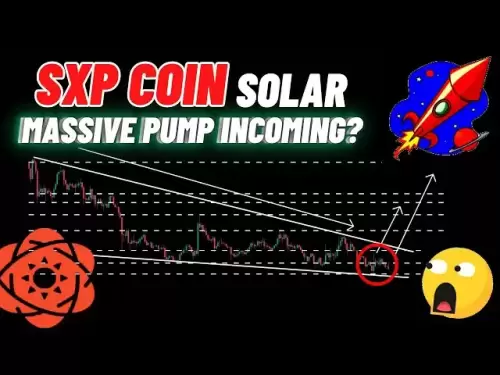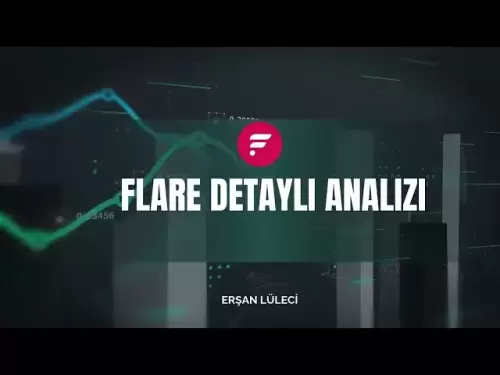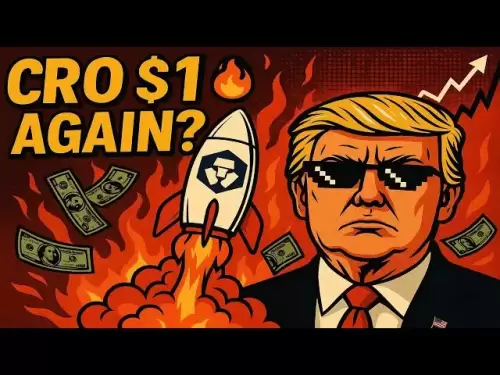-
 Bitcoin
Bitcoin $117400
1.93% -
 Ethereum
Ethereum $3747
3.63% -
 XRP
XRP $3.157
3.09% -
 Tether USDt
Tether USDt $1.000
0.02% -
 BNB
BNB $783.3
3.19% -
 Solana
Solana $186.6
5.64% -
 USDC
USDC $0.9999
0.01% -
 Dogecoin
Dogecoin $0.2375
5.42% -
 TRON
TRON $0.3185
1.32% -
 Cardano
Cardano $0.8191
3.28% -
 Hyperliquid
Hyperliquid $44.43
5.76% -
 Sui
Sui $3.995
9.84% -
 Stellar
Stellar $0.4396
6.27% -
 Chainlink
Chainlink $18.26
4.83% -
 Hedera
Hedera $0.2646
11.88% -
 Bitcoin Cash
Bitcoin Cash $553.5
5.55% -
 Avalanche
Avalanche $24.13
4.73% -
 Litecoin
Litecoin $113.3
1.77% -
 UNUS SED LEO
UNUS SED LEO $8.975
0.11% -
 Shiba Inu
Shiba Inu $0.00001405
5.69% -
 Toncoin
Toncoin $3.319
7.46% -
 Ethena USDe
Ethena USDe $1.001
0.02% -
 Uniswap
Uniswap $10.44
4.98% -
 Polkadot
Polkadot $4.098
4.31% -
 Monero
Monero $328.6
1.87% -
 Dai
Dai $1.000
0.01% -
 Bitget Token
Bitget Token $4.561
2.76% -
 Pepe
Pepe $0.00001261
5.29% -
 Aave
Aave $296.8
4.02% -
 Cronos
Cronos $0.1335
3.28%
What are the regulatory risks associated with the Gods Unchained (GODS) coin?
Gods Unchained, a blockchain-based trading card game, navigates potential regulatory risks stemming from its unique blend of gaming, finance, and digital asset ownership.
Dec 28, 2024 at 12:50 pm
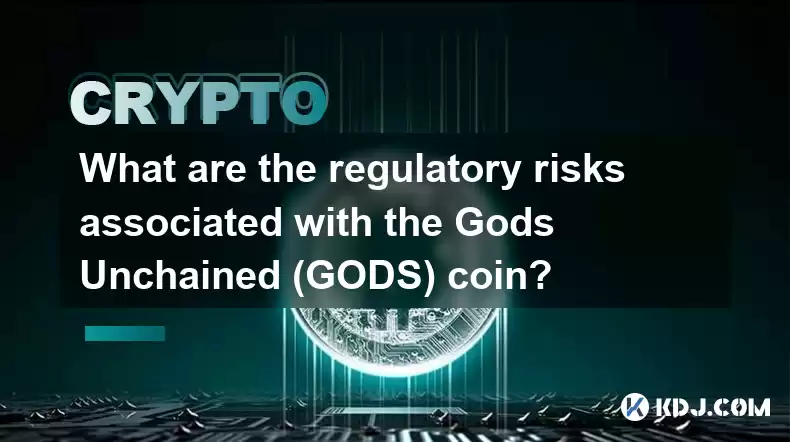
Key Points
- Definition and Background of Gods Unchained (GODS)
- Regulatory Framework and Potential Risks for Gods Unchained (GODS)
- KYC, AML, and Terrorist Financing Regulations
- Securities Regulations and Classification
- Data Protection and Privacy Concerns
- Taxation Implications
- Enforcement Actions and Penalties
- FAQs Related to Gods Unchained (GODS) and Regulatory Risks
What is Gods Unchained (GODS)?
Gods Unchained is a free-to-play, play-to-earn digital trading card game built on the Ethereum blockchain. Players can collect, trade, and battle cards, with the potential to earn the native GODS token as rewards. GODS is an ERC-20 token that can be used within the game to purchase cards, upgrade abilities, and participate in governance.
Regulatory Framework and Potential Risks for Gods Unchained (GODS)
The regulatory landscape for cryptocurrency and blockchain-based projects is constantly evolving. Gods Unchained, as a blockchain-based game involving a native token, faces potential regulatory risks. These risks stem from the nature of the project, which combines elements of gaming, finance, and digital asset ownership.
KYC, AML, and Terrorist Financing Regulations
Financial regulators around the world are implementing Know Your Customer (KYC), Anti-Money Laundering (AML), and Combating the Financing of Terrorism (CFT) regulations to prevent the use of cryptocurrencies for illicit activities. These regulations require cryptocurrency exchanges and other service providers to collect and verify user information, monitor transactions for suspicious activity, and report any potential violations. Gods Unchained may fall within the scope of these regulations if it incorporates mechanisms for exchanging GODS tokens for fiat currencies or other digital assets.
Securities Regulations and Classification
Securities regulations define which digital assets are considered securities, which fall under the jurisdiction of securities regulators. Depending on the specific characteristics of GODS, such as its economic purpose, issuance structure, and distribution mechanisms, it could potentially be classified as a security. If GODS is deemed a security, it would need to comply with the applicable registration, disclosure, and investor protection requirements.
Data Protection and Privacy Concerns
Gods Unchained collects user information, including personal data, to facilitate gameplay, rewards distribution, and other functions. The game's privacy policy and data handling practices must adhere to relevant data protection regulations, such as the General Data Protection Regulation (GDPR) in the European Union. These regulations impose obligations on businesses to protect user data, provide transparency about data processing, and respond to user requests regarding their personal information.
Taxation Implications
The taxation of cryptocurrencies and blockchain-based games varies across jurisdictions. GODS tokens may be subject to income tax, capital gains tax, or other forms of taxation, depending on the user's activities and the specific tax laws in their country of residence. It is important for Gods Unchained users to consult with tax professionals to understand their tax obligations.
Enforcement Actions and Penalties
Regulators have the authority to carry out enforcement actions against cryptocurrency projects that violate applicable laws or engage in illegal activities. These actions may include civil penalties, injunctions, and criminal prosecutions. Gods Unchained could face regulatory scrutiny if it fails to comply with relevant regulations or if its operations are found to be in violation of applicable laws.
FAQs Related to Gods Unchained (GODS) and Regulatory Risks
1. Is it safe to invest in GODS?
The safety of investing in GODS depends on several factors, including the underlying fundamentals of the project, market conditions, and regulatory risks. It is important for investors to conduct thorough research and understand the potential risks involved before investing in any cryptocurrency.
2. How can I reduce the regulatory risks associated with GODS?
Investors can reduce regulatory risks by staying informed about applicable laws and regulations, choosing regulated cryptocurrency exchanges and service providers, and storing their GODS tokens in secure wallets.
3. What are the potential consequences of regulatory actions against Gods Unchained?
Regulatory actions against Gods Unchained could result in fines, injunctions, or criminal penalties. The specific consequences would depend on the nature and severity of the violations.
4. How does data privacy impact my use of Gods Unchained?
Gods Unchained collects user data to facilitate gameplay and other functions. Users should carefully review the game's privacy policy and understand how their data is being processed and protected.
5. How can I stay up-to-date on regulatory developments affecting Gods Unchained?
Regulators and industry experts regularly publish updates on regulatory developments affecting cryptocurrency projects. Investors should follow these sources to stay informed about the latest regulatory trends and their potential impact on Gods Unchained.
Disclaimer:info@kdj.com
The information provided is not trading advice. kdj.com does not assume any responsibility for any investments made based on the information provided in this article. Cryptocurrencies are highly volatile and it is highly recommended that you invest with caution after thorough research!
If you believe that the content used on this website infringes your copyright, please contact us immediately (info@kdj.com) and we will delete it promptly.
- Wall Street's Bitcoin Bonanza: ETF Filings Signal Crypto's Coming-Out Party
- 2025-07-26 15:10:12
- Bitcoin, Cynthia Lummis, and Freedom Money: A New York Perspective
- 2025-07-26 15:10:12
- Bitcoin, Altcoin Season, and Market Shift: What's the Deal?
- 2025-07-26 14:30:12
- PEPE, Altcoins, and Bitcoin: Navigating the Meme Coin Mania in 2025
- 2025-07-26 14:30:12
- UAE's Digital Asset Revolution: Stablecoin Regulations Take Center Stage
- 2025-07-26 10:40:11
- Whale Transactions and ENA Token: Decoding the Withdrawal Dynamics
- 2025-07-26 14:50:12
Related knowledge

What is Chainlink (LINK)?
Jul 22,2025 at 02:14am
Understanding Chainlink (LINK): The Decentralized Oracle NetworkChainlink is a decentralized oracle network designed to bridge the gap between blockch...

What is Avalanche (AVAX)?
Jul 22,2025 at 08:35am
What is Avalanche (AVAX)?Avalanche (AVAX) is a decentralized, open-source blockchain platform designed to support high-performance decentralized appli...

What is Polkadot (DOT)?
Jul 19,2025 at 06:35pm
Understanding the Basics of Polkadot (DOT)Polkadot (DOT) is a multi-chain network protocol designed to enable different blockchains to transfer messag...

What is Litecoin (LTC)?
Jul 23,2025 at 11:35am
Overview of Litecoin (LTC)Litecoin (LTC) is a peer-to-peer cryptocurrency that was created in 2011 by Charlie Lee, a former Google engineer. It is oft...

What is Monero (XMR)?
Jul 21,2025 at 10:07am
What is Monero (XMR)?Monero (XMR) is a decentralized cryptocurrency designed to provide enhanced privacy and anonymity for its users. Unlike Bitcoin a...

How to add indicators to Ethereum chart on TradingView?
Jul 19,2025 at 07:15am
What Is an Ethereum Chart on TradingView?The Ethereum chart on TradingView is a visual representation of the price movement of Ethereum (ETH) over a s...

What is Chainlink (LINK)?
Jul 22,2025 at 02:14am
Understanding Chainlink (LINK): The Decentralized Oracle NetworkChainlink is a decentralized oracle network designed to bridge the gap between blockch...

What is Avalanche (AVAX)?
Jul 22,2025 at 08:35am
What is Avalanche (AVAX)?Avalanche (AVAX) is a decentralized, open-source blockchain platform designed to support high-performance decentralized appli...

What is Polkadot (DOT)?
Jul 19,2025 at 06:35pm
Understanding the Basics of Polkadot (DOT)Polkadot (DOT) is a multi-chain network protocol designed to enable different blockchains to transfer messag...

What is Litecoin (LTC)?
Jul 23,2025 at 11:35am
Overview of Litecoin (LTC)Litecoin (LTC) is a peer-to-peer cryptocurrency that was created in 2011 by Charlie Lee, a former Google engineer. It is oft...

What is Monero (XMR)?
Jul 21,2025 at 10:07am
What is Monero (XMR)?Monero (XMR) is a decentralized cryptocurrency designed to provide enhanced privacy and anonymity for its users. Unlike Bitcoin a...

How to add indicators to Ethereum chart on TradingView?
Jul 19,2025 at 07:15am
What Is an Ethereum Chart on TradingView?The Ethereum chart on TradingView is a visual representation of the price movement of Ethereum (ETH) over a s...
See all articles





















